
“I Would Have No Patience”: Woman With Emetophobia Shares What Goes On In Her Family Group Chat
Few people enjoy not feeling well, especially when the sickness is brought on by food—one of life’s main sources of happiness. But some people fear that more than others, especially those dealing with emetophobia, a strong fear of vomiting and situations related to it.
The author of Every Colour of You and The Missing Pieces of Me, Amelia Mandeville-Marinaro, recently went viral after sharing her family’s reactions to her concerns caused by emetophobia. The TikToker posted screenshots from the family chat, consequently melting the hearts of fellow netizens over how patient and caring her loved ones are.
The fear of vomiting, also known as emetophobia, can make a person quite anxious about the food they consume
Image credits: Prostock-studio (not the actual image)
The family messages that Amelia shared were viewed nearly 2M times on TikTok
Image credits: ameliamandeville
Her family members were patient and understanding with Amelia’s concerns
Image credits: ameliamandeville
Image credits: ameliamandeville
Image credits: ameliamandeville
Image credits: ameliamandeville
Image credits: ameliamandeville
Image credits: ameliamandeville
Image credits: ameliamandeville
Image credits: ameliamandeville
Image credits: ameliamandeville
Image credits: ameliamandeville
Image credits: ameliamandeville
Image credits: ameliamandeville
Image credits: ameliamandeville
Image credits: ameliamandeville
Image credits: ameliamandeville
Estimates suggest that emetophobia affects roughly 0.1% of the population, making it quite a rare condition
Though based on the fear of vomiting, emetophobia can be triggered by more than just being sick; for some people, thinking about it alone can make them feel anxious or unwell, while others can’t handle seeing those around them undergo such an unpleasant happening.
Research suggests that people with emetophobia are likely to avoid crowded places, which they might not escape easily in case they get nauseous (such as shops, airplanes, and concerts, to name a few). They might also be hesitant to travel on public transport or steer clear of certain individuals, typically those who are ill or at risk of vomiting (drunk people, for example).
Their avoidance might extend to other everyday tasks or items, such as using medication, going to the dentist, or consuming certain foods, which they believe might make them sick. Each case of emetophobia can be very different, but, in general, estimates suggest that roughly 0.1% of the population deal with such a condition.
Image credits: cottonbro studio (not the actual image)
For some people dealing with the condition, the anticipation of vomiting is worse than the act itself
The Anxiety & Depression Association of America (ADAA) pointed out that for people dealing with emetophobia, the anticipation of vomiting is often worse than the act itself. To make matters worse, it’s often accompanied by other related concerns, such as the fear of not being able to find a bathroom in time, being unable to stop when you get sick, or being admitted to the hospital.
According to ADAA, the condition can develop spontaneously or following a traumatic experience related to vomiting, and it tends to escalate with time, making the person more and more hypervigilant. Eventually it affects the person’s life on a daily basis, by altering their dietary habits, for instance, or eliciting compulsive checking and avoidance.
Amelia’s habits were seemingly influenced by the condition as well, as some of the products she used for cooking would cause anxiety or concern; however, in another video she said that she tries not to restrict her foods as much as she can. The woman also explained that that’s the reason why there are so many messages on the family group chat regarding the food she consumes, which seems to be part of a journey that she is lucky to embark on with clearly very supportive family members.
Image credits: Liza Summer (not the actual image)
Fellow netizens shared their thoughts in the comments
Poll Question
Thanks! Check out the results:
The emetophobia is one thing, it's sweet that her family are so supportive. But she also doesn't seem to know a lot about food, it's storage and preparation. I wonder if those 2 are related (i.e.not knowing how natural food looks like, being exposed to many processed products, and that contributing to fear of the produce not being safe). Or does she know the fear is irrational but can't help herself?
or could it be that she also doubt herself so much she don't trust what she knows??
Load More Replies...She should see a therapist about this, it looks like food takes up her entire brainspace. And for someone who spends so much time thinking about food, she seems to have no idea how food looks like and how to tell something is spoiled. Not great for an adult.
Therapy can only do so much. She would also benifit from cooking classes or watching cooking videos to learn how to tell if food has gone bad or is about to go bad. Learned most my food knowledge from food network alone
Load More Replies...Personally I don’t think I could have the amount of patience needed to constantly have to reassure someone that food is good. By this time she should have a general knowledge of eating things.
it's a phobia. it's not rational. it is stronger than "general knowledge"
Load More Replies...The emetophobia is one thing, it's sweet that her family are so supportive. But she also doesn't seem to know a lot about food, it's storage and preparation. I wonder if those 2 are related (i.e.not knowing how natural food looks like, being exposed to many processed products, and that contributing to fear of the produce not being safe). Or does she know the fear is irrational but can't help herself?
or could it be that she also doubt herself so much she don't trust what she knows??
Load More Replies...She should see a therapist about this, it looks like food takes up her entire brainspace. And for someone who spends so much time thinking about food, she seems to have no idea how food looks like and how to tell something is spoiled. Not great for an adult.
Therapy can only do so much. She would also benifit from cooking classes or watching cooking videos to learn how to tell if food has gone bad or is about to go bad. Learned most my food knowledge from food network alone
Load More Replies...Personally I don’t think I could have the amount of patience needed to constantly have to reassure someone that food is good. By this time she should have a general knowledge of eating things.
it's a phobia. it's not rational. it is stronger than "general knowledge"
Load More Replies...
 Dark Mode
Dark Mode 

 No fees, cancel anytime
No fees, cancel anytime 






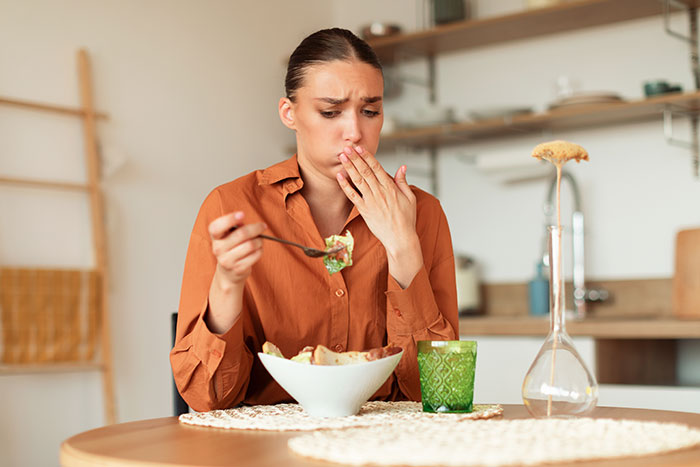
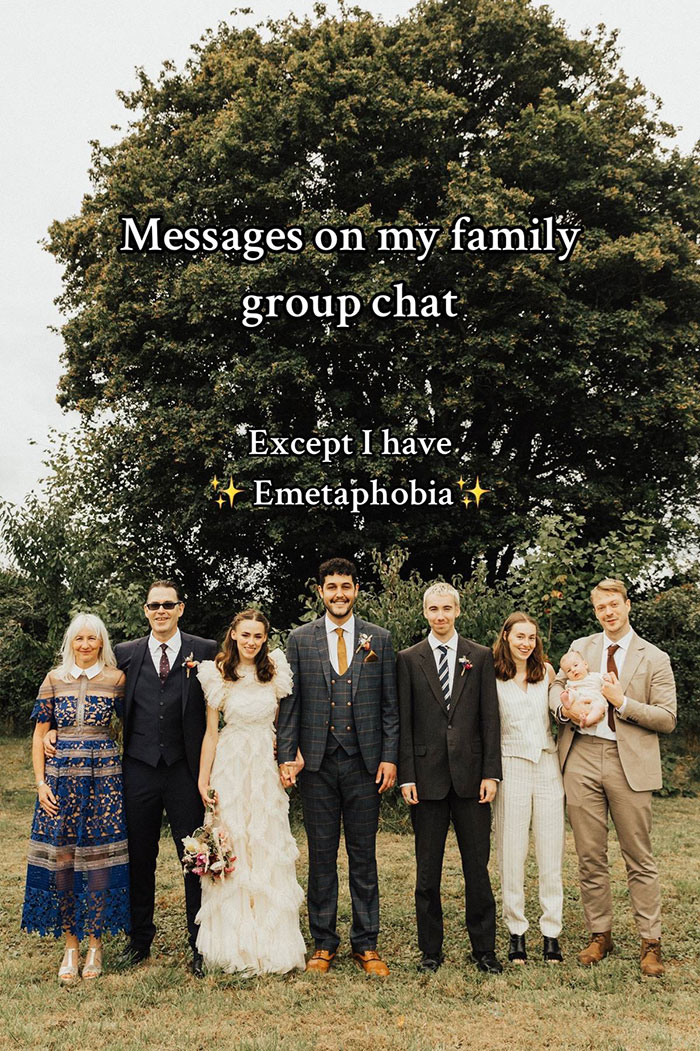
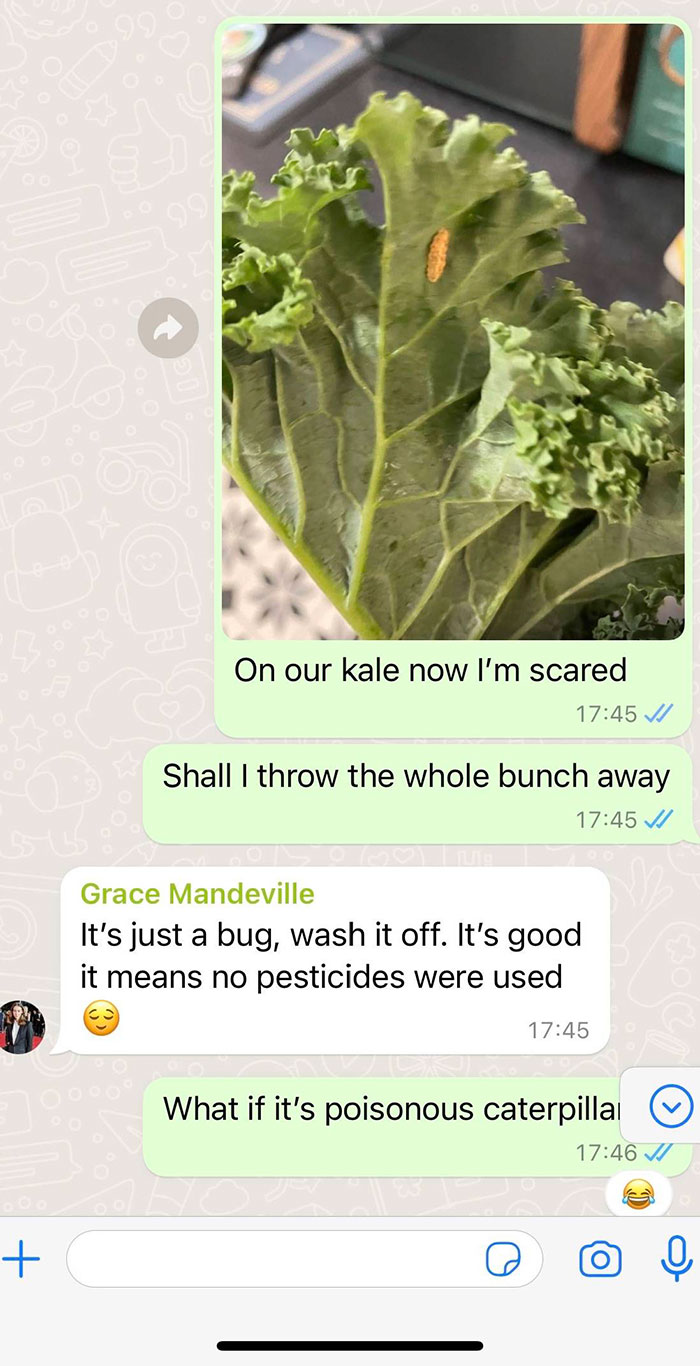
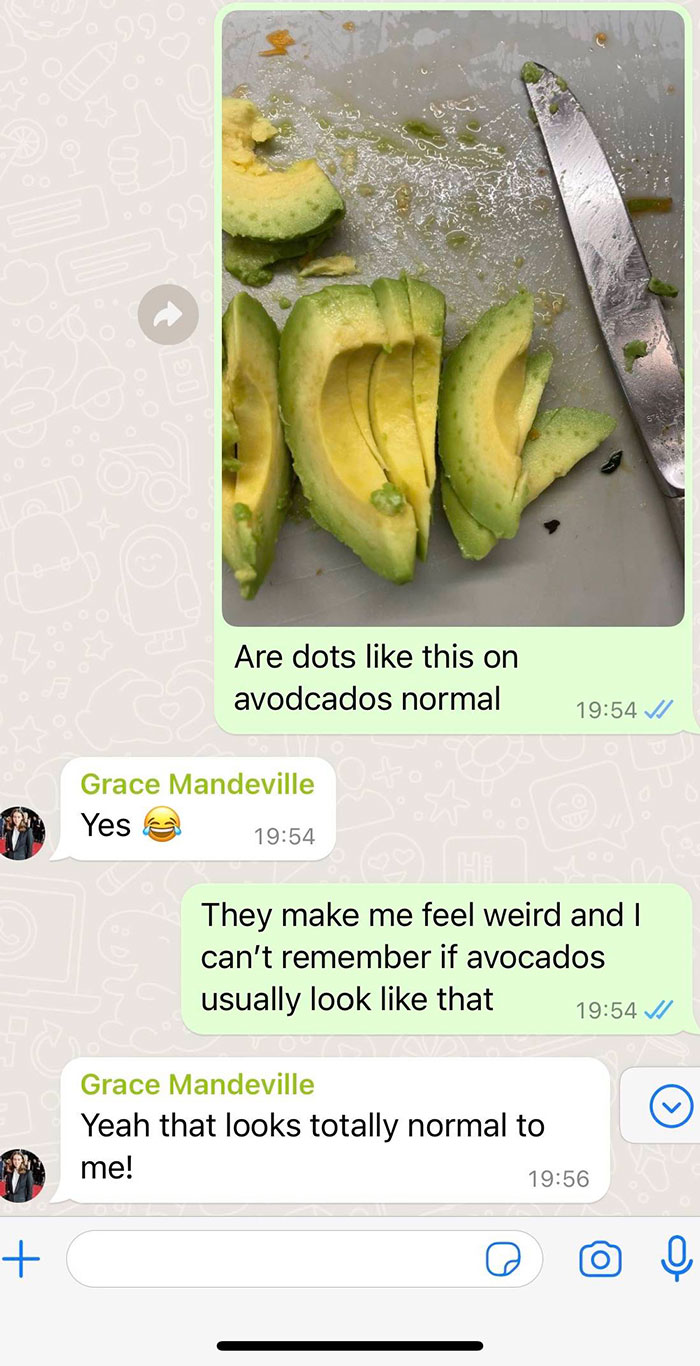
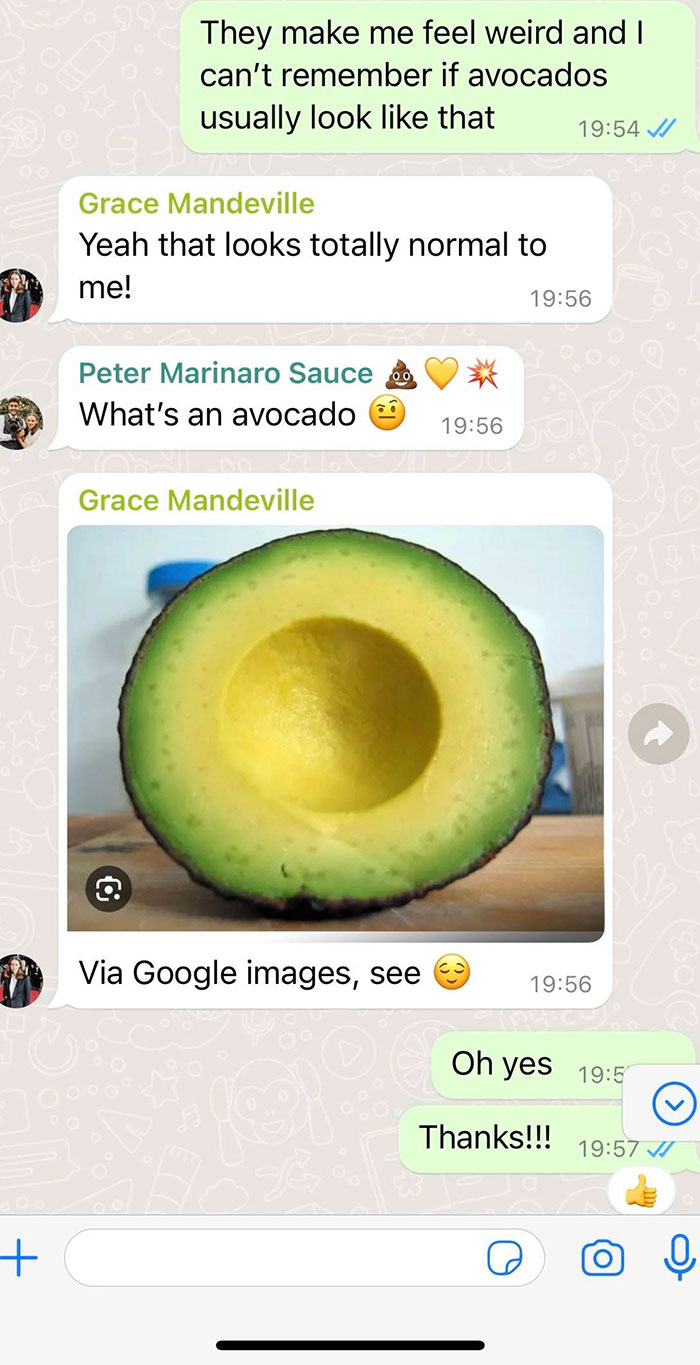
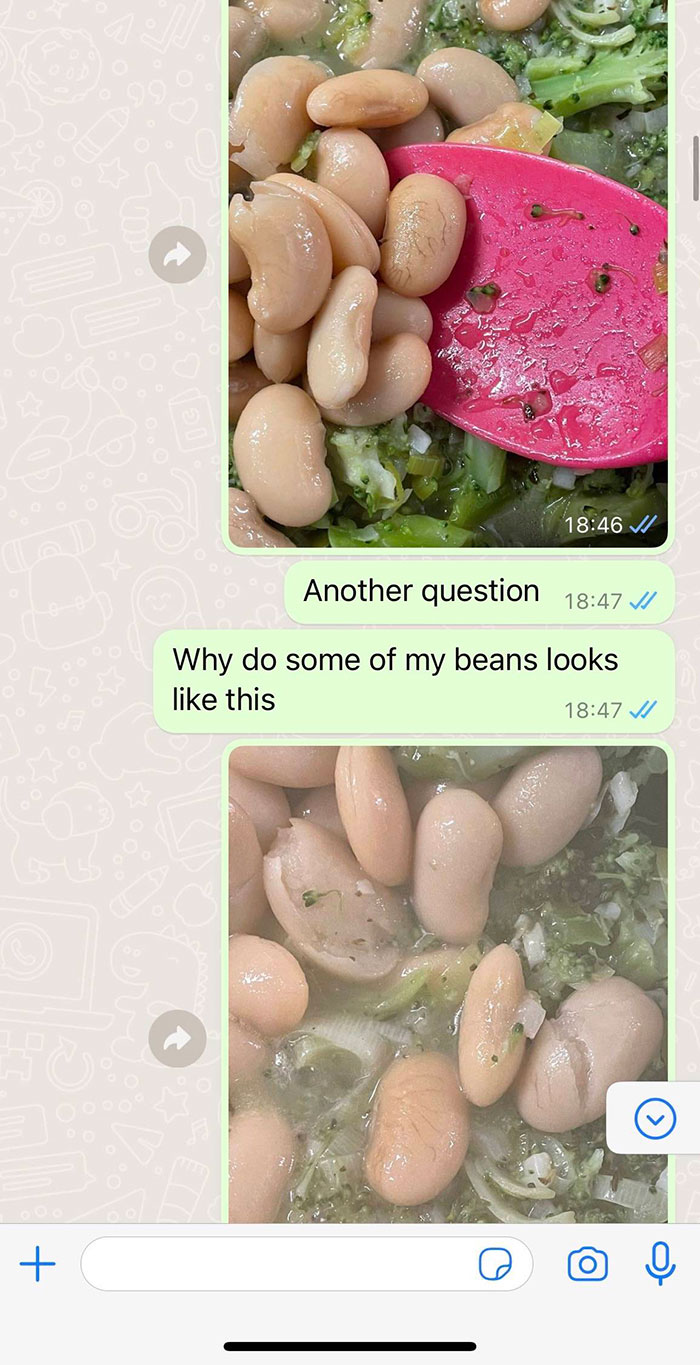
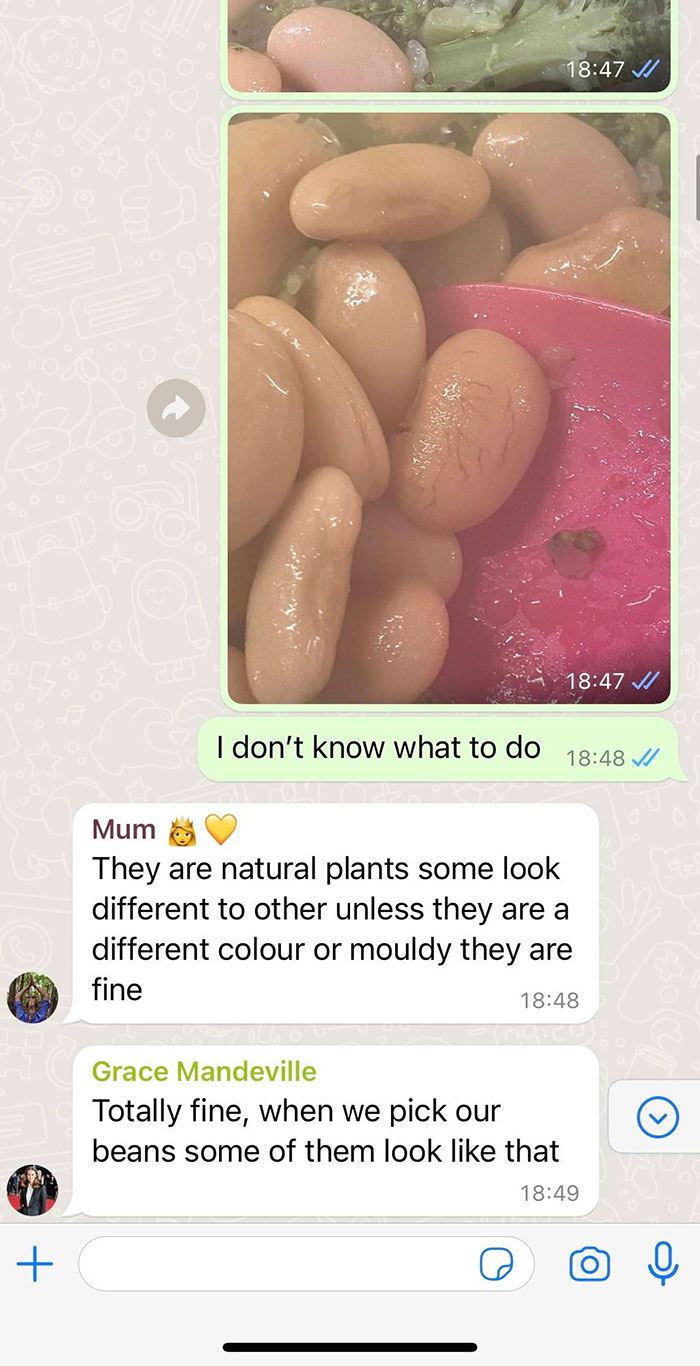
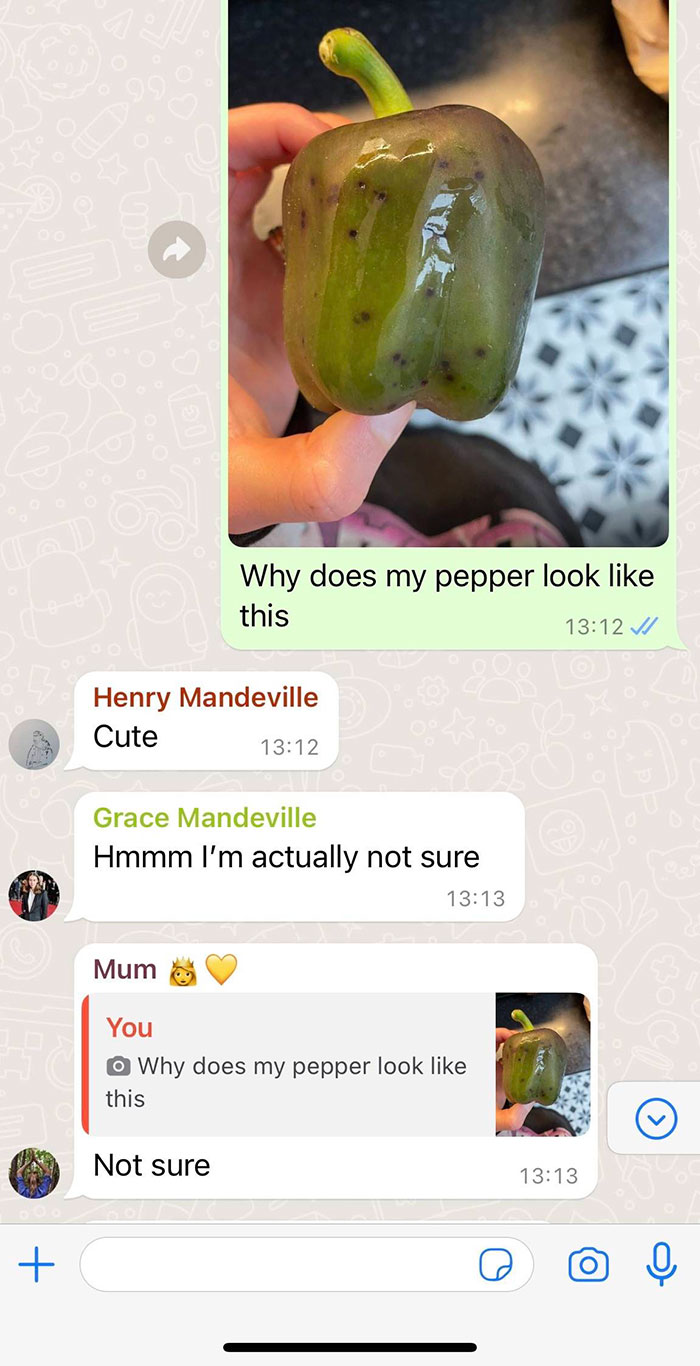
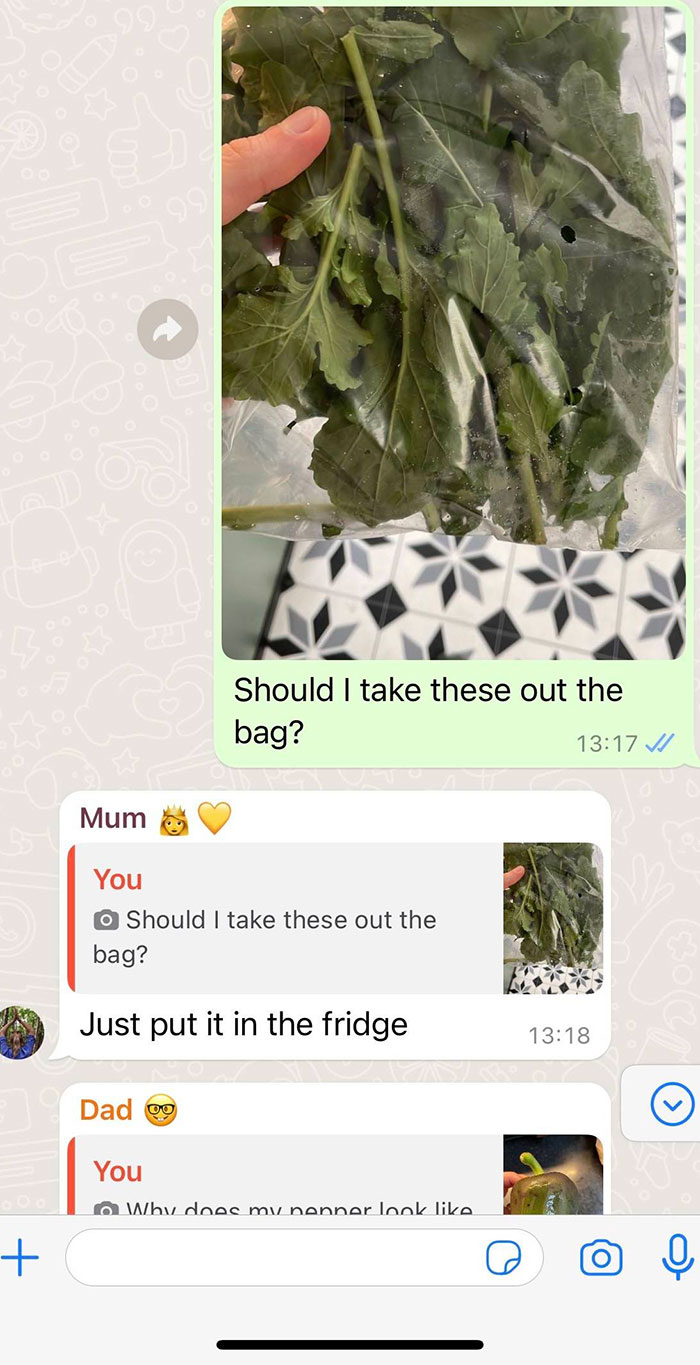
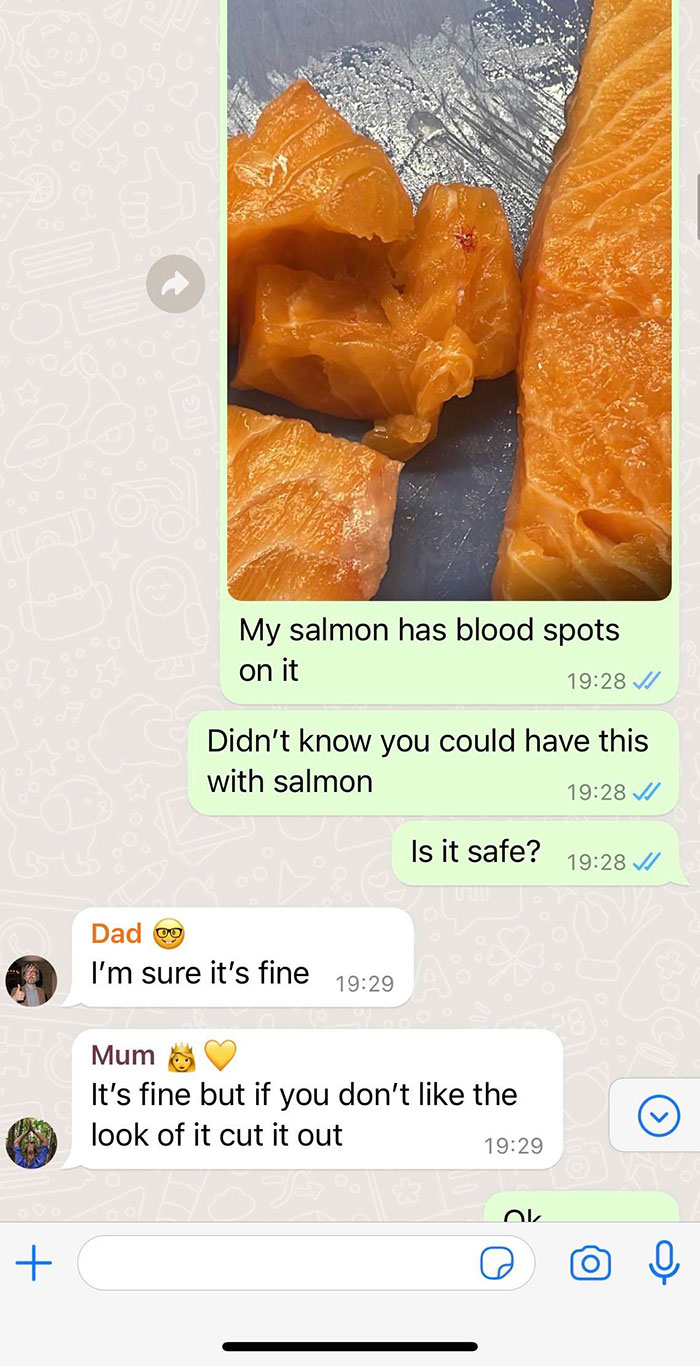

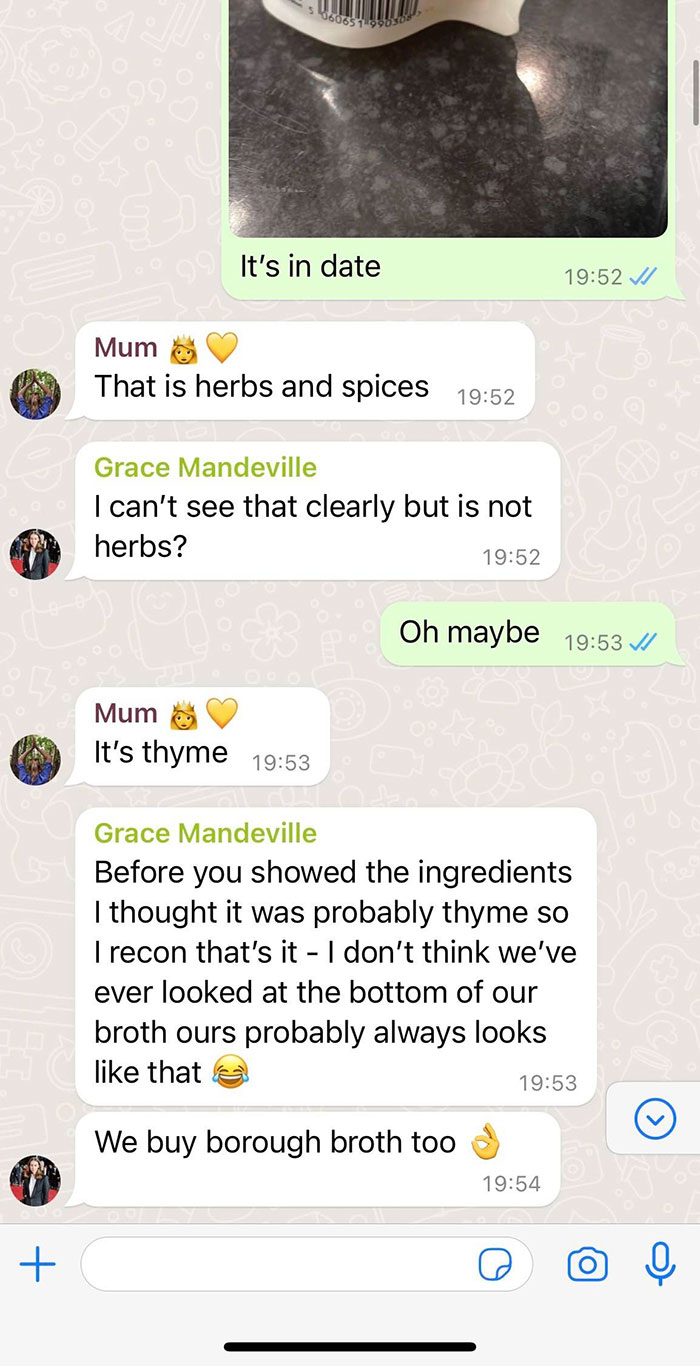

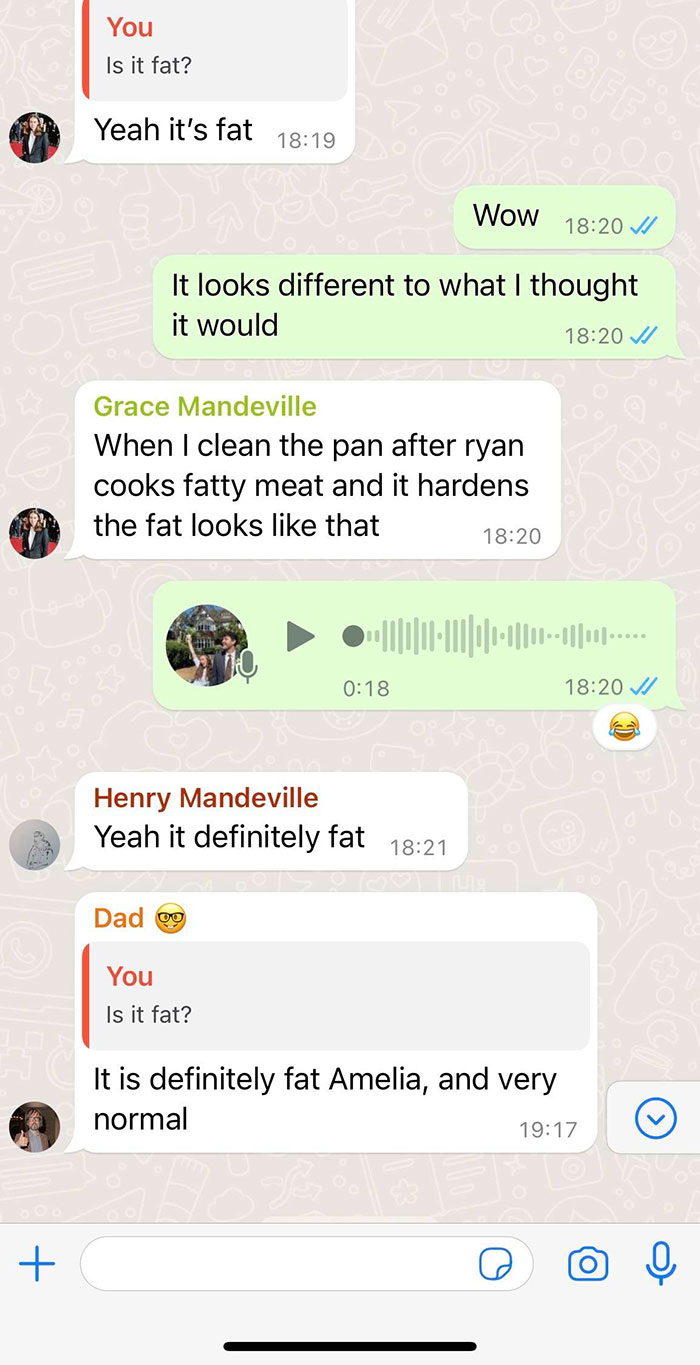
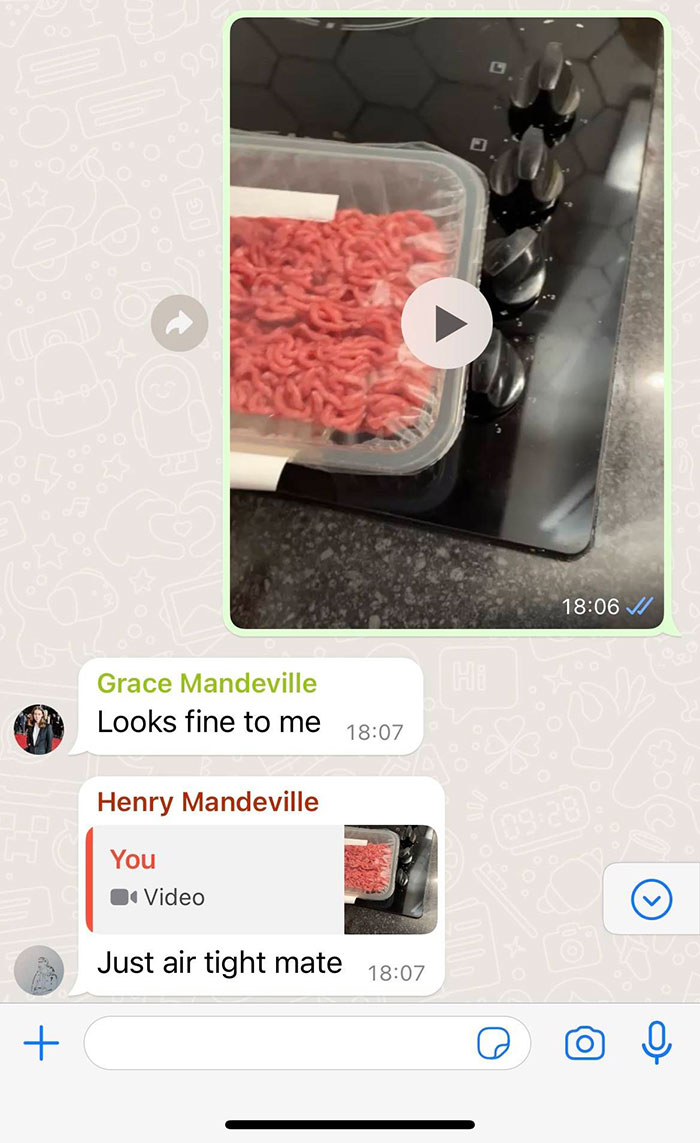

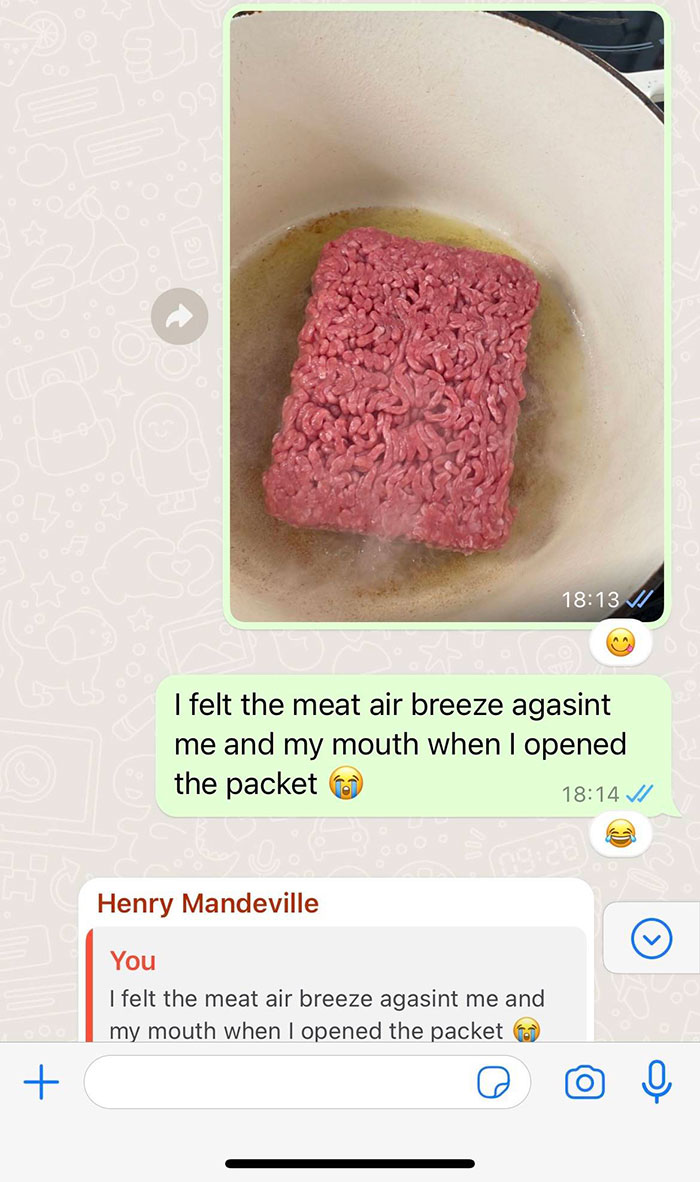


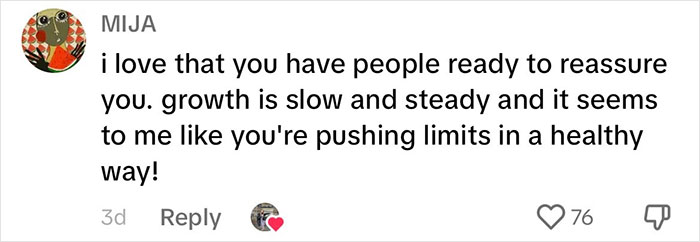








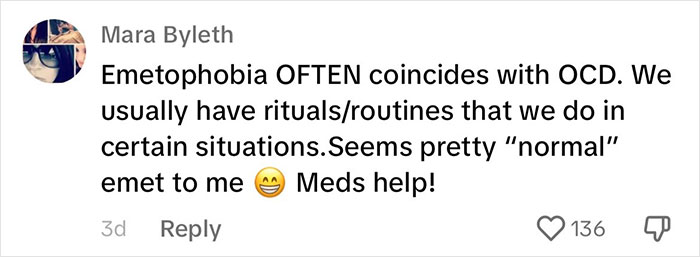




















































7
34